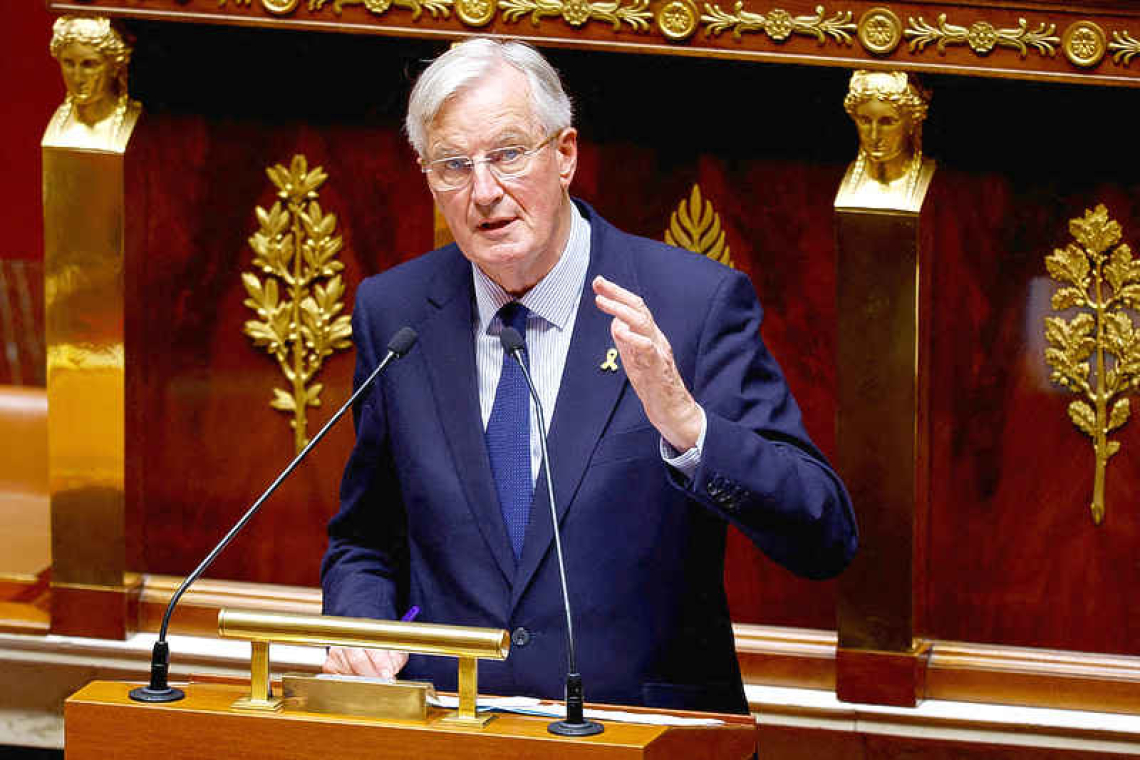PARIS--France's government has put the country's explosive pensions issue back on the agenda as it seeks to reduce a gaping budget hole.
But this time, it wants pensioners to contribute to belt-tightening efforts themselves. It also wants lawmakers used to pandering to older voters to back it. Economists and analysts say that if France really wants to tackle its bloated public spending, the baby-boom generation - those born between 1946 and 1964 - must take a hit to their pensions, which account for more than a quarter of annual French government spending. The government of Prime Minister Michel Barnier, who is desperately looking for savings to include in the 2025 budget, proposed postponing an increase in pensions to reflect inflation from January to mid 2025, saving 4 billion euros ($4.4 billion).
But even that tentative step led to an outcry by politicians, who fear pensioners, an eager voting bloc, would punish parties that touch their pension payments. Far-right leader Marine Le Pen, whose party is one of the biggest in parliament and whose tacit support Barnier needs to survive, was quick to say the move was unacceptable and amounted to "stealing billions from our elders".
Even former interior minister Gerald Darmanin, in Barnier's broader camp, said it would be an absurd thing to do. A growing number of economists and analysts say that pensions would be an obvious place to find savings in France's overall public spending, which is among the highest in the world at 57% of GDP. "It's difficult to reduce spending only through cuts without doing anything about pensions," former public finance auditor Francois Ecalle said.
President Emmanuel Macron's government has sought to reduce pension costs by asking workers to retire two years later, at 64, in a much-contested reform last year. But it has mostly refrained from targeting existing pensioners. French pensions are financed through workers' hefty payroll contributions, leaving the system under pressure as the number of pensioners swells relative to the workforce. "One issue is taboo in France: the unbelievable level of debt left by the baby-boom generation to the generations that followed," Rafik Smati, an entrepreneur, said in a post on X. "Boomers owe us." Younger taxpayers increasingly complain about "boomers" refusing to share the burden.
A satirical French X account called "Costa Boomer" mocks spoilt pensioners enjoying cruises while younger taxpayers toil away. In France's hung parliament, Barnier can ill afford to ignore powerful lawmakers, who could bring his government down. Following the outcry, Barnier said lawmakers could bring the pension increase back to January if they come up with equivalent savings elsewhere. But the savings suggested so far do not come anywhere close. Le Pen has suggested saving 750 million euros a year on cutting subsidies to NGOs she says are helping migrants. Darmanin suggested saving money on the public broadcaster or getting rid of the 35-hour working week. Some economists say the previous government missed a chance to rein in pensions when it raised them 5.3% in January to match inflation.
That increase, months ahead of an EU parliament election, cost close to 15 billion euros annually, eroding much of the 17 billion euros saved by pushing back the retirement age to 64. A lawmaker in Macron's party told Reuters Macron considered it political suicide to touch pensions close to elections. Young and working class voters have deserted his party, leaving retirees his main supporters. "This increase in pensions was the worst economic decision of the past 10 or 15 years," said Allianz economist Ludovic Subran. "It has, on its own, wiped out the budget impact of the (previous) pension reform."







